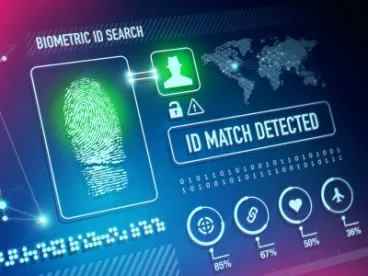Pending legislation could create new consumer privacy rights in Massachusetts. Earlier this year, Senator Cynthia Creem presented An Act Relative to Consumer Data Privacy in the Massachusetts Senate. This Consumer Privacy Bill, SD.341, combines key aspects of the California Consumer Privacy Act (CCPA) and Illinois’s Biometric Information Privacy Act (BIPA). This bill would allow Massachusetts consumers a private right of action if their personal information or biometric information (referred to separately in the bill) is improperly collected.
The Consumer Privacy Bill defines “biometric information” as an individual’s physiological, biological or behavioral characteristics, including an individual’s DNA, that can be used, singly or in combination with each other or with other identifying data, to establish individual identity. Biometric information includes, but is not limited to, imagery of the iris, retina, fingerprint, face, hand, palm, vein patterns, and voice recordings, from which an identifier template, such as a faceprint, a minutiae template, or a voiceprint, can be extracted, and keystroke patterns or rhythms, gait patterns or rhythms, and sleep, health, or exercise data that contain identifying information.
The bill defines “personal information” as any information relating to an identified or identifiable consumer. “Personal information” means information that identifies, relates to, describes, is capable of being associated with, or could reasonably be linked, directly or indirectly, with a particular consumer or the consumer’s device.
However, this definition does not include publicly available information or consumer information that is deidentified or aggregate consumer information. Moreover, the bill creates an exception for a business collecting or disclosing personal information of the business’s employees so long as the business is collecting or disclosing such information within the scope of its role as an employer. Therefore unlike California’s CCPA, where the application to employee data remains an open question, under the current text of the Massachusetts bill it is pretty clear that the law would not apply to employee data as defined above. That said, it is still early in the legislative process and the bill could be revised to include employee data.
The pending legislation would require businesses collecting a Massachusetts consumer’s personal information to notify the consumer of the following rights before the point of collection:
(1) The categories of personal information it will collect about that consumer;
(2) The business purposes for which the categories of personal information shall be used;
(3) The categories of third parties with whom the business discloses personal information;
(4) The business purpose for third party disclosure; and
(5) The consumer’s rights to request:
(A) A copy of the consumer’s personal information;
(B) The deletion of the consumer’s personal information; and
(C) Opt-out of third party disclosure.
In addition to this notice requirement, the bill would give consumers a statutory right to request that businesses collecting their personal information disclose to the consumer:
(1) The specific pieces of personal information the business has collected about that consumer;
(2) The sources from which the consumer’s personal information was collected;
(3) The names of third parties to whom the business disclosed the consumer’s personal information; and
(4) The business purpose for third party disclosure.
Businesses would have to make available to consumers two or more designated methods for submitting consumer verified requests for personal information, including, if the business maintains a web site, a link on the home page of the web site. A business receiving a verifiable consumer request generally must provide the requested information within 45 days of receiving the request, but may extend that period once by an additional 45 days, so long as the request for the extension is provided within the first 45-day period. The proposed legislation also creates a consumer right to request that a business delete any personal information collected from the consumer, and the right to opt out of third party disclosure at any time.
The legislation would be enforceable both through a private right of action and by the Massachusetts Attorney General. A consumer could recover damages in an amount not greater than $750 per consumer per incident or actual damages, whichever is greater (for any violation of the act); (2) injunctive or declaratory relief, and (3) reasonable attorney fees and costs. The Attorney General would be authorized to obtain a temporary restraining order or preliminary or permanent injunction against a violation of the Act. In addition, the Attorney General may seek a civil penalty of not more than $2,500 for each violation or $7,500 for each intentional violation.
This Consumer Privacy Bill would impose administrative burdens on businesses, including an obligation to train employees, as well as creating new exposure to damages and penalties. Given the litigation we are seeing under BIPA, businesses collecting Massachusetts consumers’ personal information should monitor the progress of this legislation to determine whether they should begin preparations for complying with yet another consumer privacy provision.




 />i
/>i

